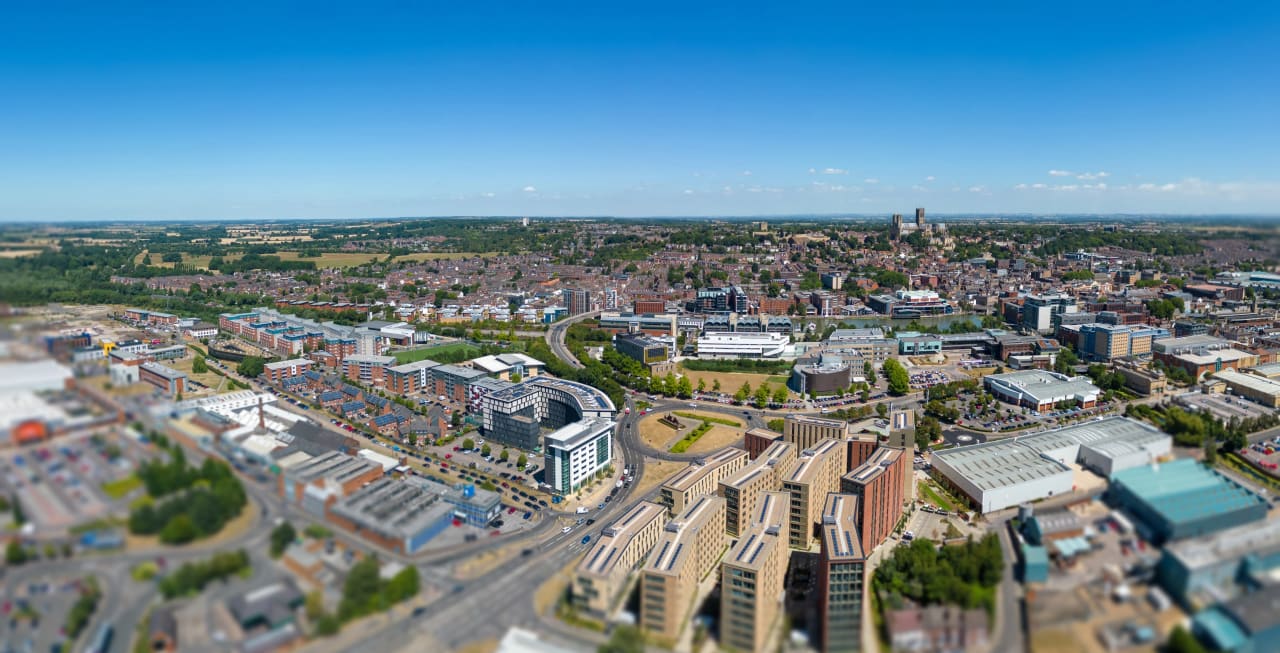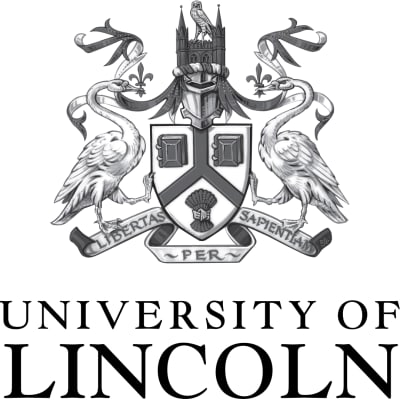
BA (Hons) Product Design
University of Lincoln

Key Information
Campus location
Lincoln, United Kingdom
Languages
English
Study format
On-Campus
Duration
3 - 4 years
Pace
Full time
Tuition fees
Request info
Application deadline
Request info *
Earliest start date
Request info
* late applications will be considered if suitable vacancies remain
Discover Lincoln Wherever You Are in the World
Our webinars, subject masterclasses, question and answer sessions, and student panel talks are a great way to discover what it is like to live and study at the University of Lincoln.
Introduction
With links to the design industry, collaboration with agencies, placement opportunities, and support to launch business start-ups, this course aims to develop the product designers of the future.
Lincoln's Product Design degree concentrates on the generation, delivery, and communication of ideas that challenge conventional thinking and open up new markets.
It aims to enable students to become skilled, conscientious, creative designers, and shrewd product developers, with an understanding of target markets and consumer experiences. Above all, we aim to develop curious graduates who are confident practitioners prepared for a life in the industry.
Our teaching aims to nurture students to develop essential skills for discovering insightful research, designing, making, testing, and experimenting. This involves activities such as using design thinking to quickly generate, develop, and test new ideas through industrial collaboration and entering design competitions.
"This information was correct at the time of publishing (July 2023)"
Admissions
Curriculum
How You Study
In the first year, students have the opportunity to develop their understanding of product design based on technical skills acquisition - from nurturing an idea to following a client brief and producing prototypes in 3D form.
The second year builds on these foundational skills and expands into the exciting areas of sensory design, visual language and cultures to help get a more in-depth view of the subject.
In the final year of the degree, students are engaged in independent projects alongside a dissertation on a design topic of their choice culminating in an end-of-year exhibition.
The programme has a vibrant and collegiate studio culture, where contact time can be in workshops, Mac and PC suites, practical sessions, seminars, or lectures and may vary from module to module and from academic year to year. Tutorial sessions and project supervision can take the form of one-to-one engagement or small group sessions. Some courses offer the opportunity to take part in external visits and fieldwork.
Studio practice is a key element of this course, and students will have the opportunity to spend a lot of time in a creative studio environment. Teaching and learning experiences may include workshop activities, peer groups, lectures, workshops, seminars, and group tutorials. Students can also benefit from one-to-one surgeries, portfolio reviews, and self-initiated work experience.
First Year
- Contextual Studies 1 (Core)
- Design Thinking (Core)
- Digital Design (Core)
- Drawing (Core)
Second Year
- Contextual Studies 2 (Core)
- Cultures (Core)
- Sensory Design (Core)
- Visual Language (Core)
Third Year
- Contextual Studies 3 (Core)
- Futures (Core)
- Negotiated Project 1 (Core)
- Negotiated Project 2 (Core)
How You Are Assessed
As this course aims to develop a wide range of practical and intellectual skills, assessment is varied and includes presentations, written projects, individual and group practical work, projects, and portfolios, in addition to academic essays.
There are no formal end-of-year examinations. Throughout the degree, students are assessed through their production of practical and written work.
Assessment Feedback
The University of Lincoln's policy on assessment feedback aims to ensure that academics will return in-course assessments to students promptly - usually within 15 working days after the submission date.
Methods of Assessment
The way students are assessed in this course may vary for each module. Examples of assessment methods that are used include coursework for example including design project work and presentations; and written assignments. The weighting given to each assessment method may vary across each academic year. The University of Lincoln aims to ensure that staff return in-course assessments to students promptly.
Gallery
Program Outcome
How You Study
In the first year, students have the opportunity to develop their understanding of product design based on technical skills acquisition - from nurturing an idea to following a client brief and producing prototypes in 3D form.
The second-year builds on these foundational skills and expands into the exciting areas of sensory design, visual language and cultures to help get a more in-depth view on the subject.
In the final year of the degree, students are engaged in independent projects alongside a dissertation on a design topic of their choice culminating in an end-of-year exhibition.
The programe has a vibrant and collegiate studio culture, where contact time can be in workshops, Mac and PC suites, practical sessions, seminars, or lectures and may vary from module to module and from academic year to year. Tutorial sessions and project supervision can take the form of one-to-one engagement or small group sessions. Some courses offer the opportunity to take part in external visits and fieldwork.
Studio practice is a key element of this course, and students will have the opportunity to spend a lot time in a creative studio environment. Teaching and learning experiences may include workshop activities, peer groups, lectures, workshops, seminars, and group tutorials. Students can also benefit from one-to-one surgeries, portfolio reviews, and self-initiated work experience.
Scholarships and Funding
For eligible undergraduate students going to university for the first time, scholarships and bursaries are available to help cover costs. The University of Lincoln offers a variety of merit-based and subject-specific bursaries and scholarships.
Several scholarship options are available. Please check the university website for more information.
Program Tuition Fee
Career Opportunities
Career opportunities exist in design consultancies and agencies, as well as in-house design departments. Some of our most recent graduates have progressed to roles including Packaging and Trims Designer at Joules, Assistant Design Manager at Playscheme, Junior Designer at GES – Global Experience Specialists, Senior Furniture Designer at Next, Design Accounts Manager at The Future Factory, Designer at Dunelm, and 3D and RP Designer at Hotter Shoes. Some become freelance designers, while others have established their own design consultancies, with the help of the University’s business incubation unit, Sparkhouse.
Graduate Joep Peters currently works as 3D Generalist at Peek Creative Studios in the Netherlands. Since graduating he has worked on films including Pacific Rim Uprising, Assassins Creed, The Martian, Guardians of the Galaxy, Prometheus, and Superman: Man of Steel.